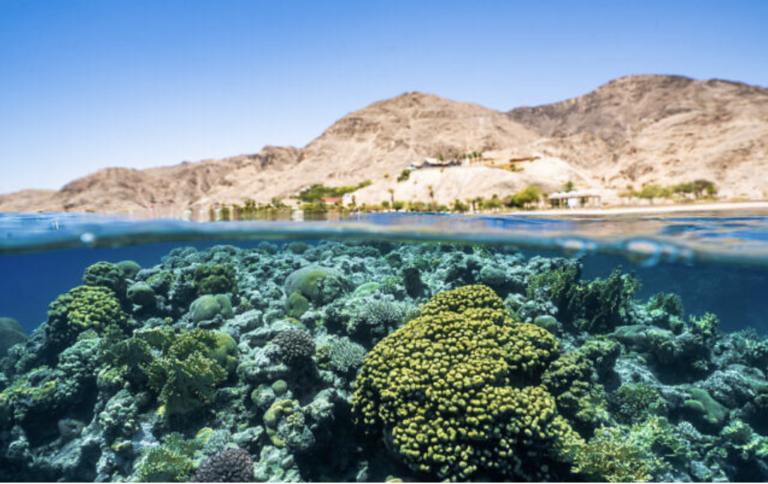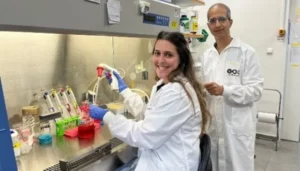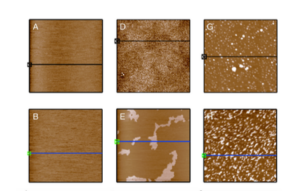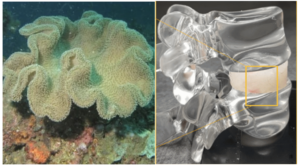La fille de Paul McCartney fait la promotion des emballages Tipa (Israël),100% biocompostables

[:fr]Et si la mode allait donner le ton en matière de plastiques 100% biocompostables ? Stella McCartney et d’autres noms influents de la mode et du luxe misent désormais sur le plastique TIPA. Un matériau qui ressemble trait pour trait à la version polluante, tout en étant entièrement biodégradable en compost. Stella McCartney pourrait ainsi entraîner dans son sillage Gucci, Saint Laurent, Balenciaga et d’autres griffes détenues comme elle par le numéro deux mondial du luxe. Le soutien de ces marraines huppées pousse TIPA à croire en l’avenir radieux de son plastique dans l’industrie de la mode. « Ces marques leaders mènent le marché vers la prochaine ère des emballages plastiques compostables », affirme ainsi l’israélienne Daphna Nissenbaum, CEO de Tipa.
La très charimatique CEO de Tipa, Daphna Nissenbaum avait notamment été l’invitée d’Esther Amar lors de la conférence « Femmes, Sciences et Innovations » organisée par le magazine Israël Science Info à Jérusalem en 2016.

Stella McCartney devrait à terme utiliser ce plastique pour toutes sortes d’emballages. Un vaste marché de robes, bottes et autres accessoires vendus dans 900 points de vente autour du monde.
Des déchets qui macèrent débarquent dans le rutilant monde du luxe. Le mérite de ce mariage improbable revient à TIPA, jeune pousse israélienne et à son plastique qui se désagrège comme une pelure d’orange, mais en un peu plus de temps (six mois). Un matériau qui séduit des grands noms de la mode soucieux d’écologie, comme Stella McCartney et Gabriela Hearst. Le matériau les a bluffées. À l’œil nu, aucune différence avec le plastique qui forme un septième continent en surface des océans.
Même transparence, même bruit quand il se déchire, même toucher lisse, même imperméabilité.
Sauf que celui-ci est conçu à partir de champignons, d’algues et de graines, et est consommable par des bactéries pour se transformer en engrais. Le tout en étant adapté aux lignes de production des emballages conventionnels. Aujourd’hui, TIPA emballe des barres de céréales, des produits frais avec sa version à fermeture zippée, des magazines, aussi bien en Israël qu’aux États-Unis, en France, au Royaume-Uni et en Allemagne.

Mais depuis quelques mois, un autre secteur s’intéresse de près à ces emballages qui enrichissent l’environnement plutôt que de le polluer: le luxe. En tout cas, quelques figures parmi les plus influentes de ce monde. Par exemple Gabriela Hearst, dont le groupe de médias familial, Hearst Corporation, édite notamment les prestigieux Elle et Harper Bazaar. Avec son mari Austin, l’héritier de l’empire Hearst, elle a investi 11 M$ dans TIPA en octobre.
Gabriela Hearst qui, par ailleurs, désigne elle-même une ligne pour femmes, et va utiliser ces plastiques pour emballer ses vêtements et accessoires.
Mais surtout Stella McCartney, la designeuse activiste qui a banni peaux, fourrures d’animaux et autres matériaux non-végétariens de ses collections, a noué un contrat avec TIPA.
La fille de Sir Paul a utilisé des enveloppes en plastique TIPA pour envoyer les invitations à son défilé printemps-été 2018. Des invitations en forme de rouleau de sacs poubelles super green !
Le partenariat avec cette marque qui à l’habitude de souffler à sa maison-mère Kering des idées pour réduire son empreinte environnementale, « ne fait que commencer », indique la fondatrice de TIPA, Daphna Nissenbaum.
En outre, elles « donnent l’exemple à d’autres marques grand public dans de nombreux secteurs ».
Les emballages plastiques représentent les deux tiers des déchets plastiques dans le monde. Des rebuts qui mettent des centaines d’années à se désagréger, et jamais complètement.
Ainsi, le marché des emballages biodégradables est voué à croître de manière exponentielle. Il devrait dépasser les 65 milliards de dollars en 2022 selon une étude de Research and Markets.
Sources BFMTV et koide9enisrael
Nos autres articles sur Tipa :
Tipa (Israël) lève 11 M$ pour développer ses emballages 100% biocompostables
Tipa, la start-up israélienne qui veut faire disparaître le plastique souple
TIPA (Israël) et le groupe Jindal (Inde) vont développer des films 100% biocompostables
L’entreprise éco-consciente Snact (UK) choisit les emballages 100% bio compostables de Tipa (Israël)
Staying true to Stella McCartney’s ongoing commitment to sustainability, the brand turns to the Israeli based start-up developer and manufacturer, TIPA for their breakthrough bio-based, fully compostable flexible sustainable packaging solutions. The brand has committed to convert all industrial cast film packaging to TIPA plastic which is designed to break down into compost, a step towards a solution for the massive problem of plastic waste. In celebration of this ground breaking solution, the envelopes for the guest invitations to the Stella McCartney upcoming Summer 2018 fashion show on October 2nd in Paris have been made by TIPA using the same process as the compostable plastic cast film.
Plastics used for packaging, both food and non-food, account for a staggering two-thirds of the world’s plastic waste. And it takes over hundreds of years for conventional plastic to breakdown. Out of the nearly 300 million tons of plastic produced every year, half is for single use. Therefore sustainability solutions and eco packaging remains a critical topic for brands as it looks to eliminate and reduce plastic waste in all forms within the value chain, as well as meeting industry guidelines for biodegradability and self-regulation commitments.
As a vegetarian brand that never uses leather, fur, skins or feather in any products for both ethical and environmental reasons, Stella McCartney has made a firm commitment to being a responsible and modern company. By working with TIPA, Stella McCartney continues to turn this pledge of sustainability into solutions.
TIPA offers the same properties as conventional plastic packaging but with an end of life solution that enables the packaging to safely biodegrade in compost, in the same way as organic waste does, like the peel of an orange. The unique technology TIPA uses is based on fully compostable polymers. The films are manufactured with particular formulas developed by TIPA and protected by several IPs. The fully compostable films break down to small pieces that are then eaten by bacterias that allow for natural recycling – this is what turns the package into fertilized compost. TIPA’s plastic solutions are just as transparent, durable and impermeable as ordinary plastic packaging. However, unlike other commonly used materials on the market, TIPA packaging can be disposed along with food waste – returning to nature with no harmful impact on the environment.
Stella McCartney stands by TIPA’s vision that plastic packages will become a natural part of our organic waste, and so nature won’t even notice we were here.
About TIPA
TIPA was founded to create viable plastic packaging solutions. TIPA’s technology is about making the promise of bio-plastics real, based on deep technology innovation and multiple patents. The vision behind TIPA was to resolve the challenge of creating sustainable flexible packaging by creating advanced bio-plastics materials. TIPA envisions packaging that can be returned back to nature after it is used, just like an orange peel becomes a part of the food waste stream. Available for a wide range of packaging formats and products, TIPA products currently comprise stand alone and printed coextruded transparent and high-transparent cast films, which are sealable and printable on both sides and typically used for the packaging of fresh produce, apparel, and e-commerce products. For additional information, please visit: www.tipa-corp.com
About Stella McCartney
Stella McCartney is a luxury lifestyle brand that was launched under the designer’s name in 50/50 partnership with Kering in 2001. Stella’s approach to design emphasizes sharp tailoring, natural confidence and sexy femininity. A
lifelong vegetarian, Stella McCartney does not use any leather or fur in her designs. The brand is committed to ethical values, and believes the company is responsible for the resources it uses and the impact it has on the environment. It is therefore constantly exploring innovative ways to become more sustainable, from design to store practices and product manufacturing. Stella McCartney offers women’s ready-to-wear, menswear, accessories, lingerie, swimwear, kids, fragrance and adidas by Stella McCartney collections through 51 free-standing stores including London, New York, Los Angeles, Tokyo, Hong Kong, Paris, Milan and Shanghai. Her collections are distributed in 77 countries through 863 doors including specialty shops, and department stores, as well as shipping to 100 countries online.
[:]







